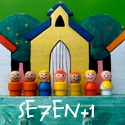Se7en Ways to Be Salt and Light as a Homeschooling Family
Today I have the privilege of sharing a guest post from the author of se7en: the life and times of a homeschooling mom of se7en + 1. Mrs Hood writes an encouraging and inspiring homeschooling blog that I especially enjoy because of its South African angle. On a previous homeschooling guest post I received a comment asking about being salt and light as a homeschooling family. Every family will have a different answer to this, and I wanted to get others' perspectives. What a blessing it is to receive some insights from the Hood family that may help us as we form our own family goals and practices. I hope you are blessed as well!
I was asked to write a guest post on "How to be Salt and Light as a Homeschool Family" and I just need to step back and consider where the whole salt and light idea comes from. In Matthew 5:13-16 Jesus tells us that we are salt and light in the world:
Matthew 5:13-16 (New International Version)
13"You are the salt of the earth. But if the salt loses its saltiness, how can it be made salty again? It is no longer good for anything, except to be thrown out and trampled by men. 14"You are the light of the world. A city on a hill cannot be hidden. 15Neither do people light a lamp and put it under a bowl. Instead they put it on its stand, and it gives light to everyone in the house. 16In the same way, let your light shine before men, that they may see your good deeds and praise your Father in heaven.
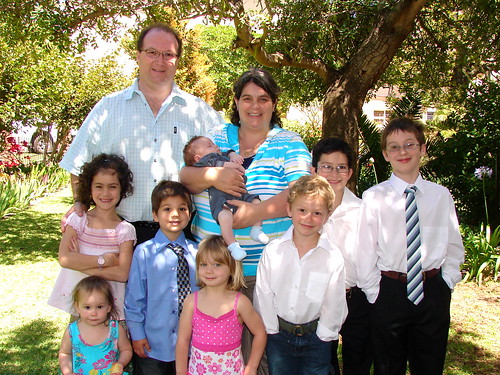
Now, not everyone is called to stand up and announce the Gospel to perfect strangers. Not everyone is comfortable with passing out Bible tracts - and that is okay because God made all sorts of people with all sorts of strengths and weaknesses. I do think that whatever your calling as a Christian family you should stand out in a crowd as a living witness.There are many ways for us to be salt and light in a non-Christian world and I am all for living our life, failings and all, for everyone to see!!!
I began by thinking about Se7en Ways that we meet and interact with people on a daily, or weekly basis. And it turns out that these are the opportunities for us to be salt and light in the world:
- Haven: We like to be a haven for Christian friends and missionaries visiting Cape Town. A place where they can come, talk about their ministry, walk on the beach and have a feast and a rest away from the demands of their work. My kids all write to missionaries around the world and hopefully these missionaries are encouraged by the fact that they are being prayed for regularly - even if their prayer partner is really short!!!
- Home from home: We like to open our home to students in our church and at a local college. They may not have grown up in a Christian home but want to see a living working Christian family. Just a place where they can come and hang out and mess around with my kids - often they have left their families and siblings far, far away and they just need some company and a meal that looks like something they would have eaten at home!!!
- Helpful: In a country that is full of a wide variety and a lot of really poor people right on our doorstep, we have been blessed with plenty. I am big on decluttering, and those things that we don't need anymore we donate... books, toys, clothes whatever. My kids have always had clothes to wear and they have always had toys to play with, the amazing thing is that the more stuff we give away the more stuff we have to give away!!!
- Humble: My kids bump into a wide variety of people on our day to day erranding... the post office guy, the laundry lady, the guy at the gas station. I don't expect them to talk about God with everyone they interact with but I do expect them to be polite, respectful and friendly.
- Honorable: When my kids play with each other and interact at home or when they are out I expect them to behave in an honorable way. I am not quite crazy, my kids are regular kids, who behave like regular kids, but they know what I expect from them!!!
- Hidden: Memorizing Bible verses and finding fun ways to teach our kids the Bible is a way to hide the word of God in our hearts. It is important that we all have the Bible written on our hearts
- Habit: We make a big deal about keeping the Sabbath Holy. Church is a priority for our family and we may or may not visit friends... but generally our Sundays are Church, rest, and a bit more church for the older kids in the evening. Often times we have been asked why don't we have a break and take a Sunday off or why don't we attend birthday parties on a Sunday morning. We have been able to share quite often that for us attending Church is a privilege and certainly not something we need a break from.
- Hopeful: That our life and times will indeed reflect the saltiness of God's Word, and that our family will be a light shining in a dark world.
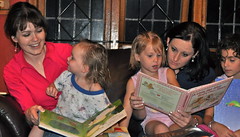

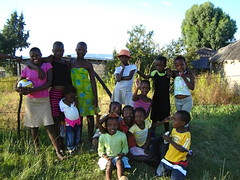
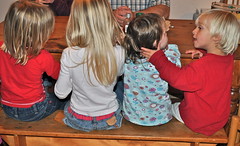



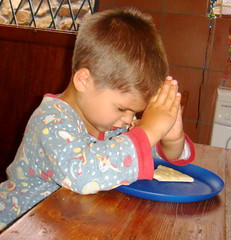 And the Se7en + 1th Thing:
And the Se7en + 1th Thing:












